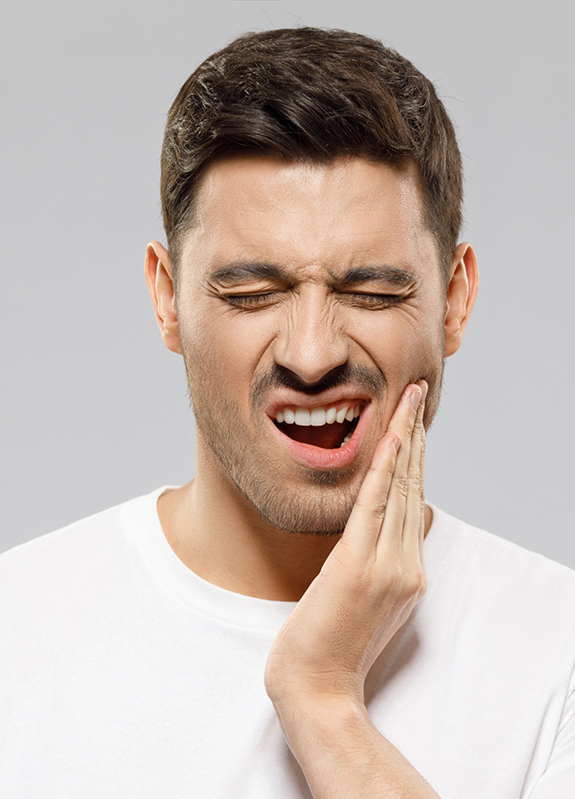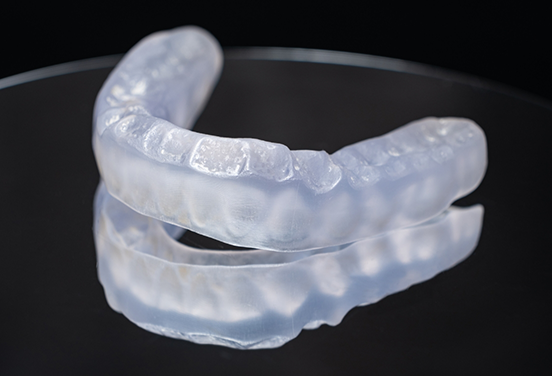What is TMJ Disorder? Fresno
Take Your First Step Toward Jaw Pain Relief

TMJ disorder, also often abbreviated as TMD, refers to conditions affecting the health and function of the temporomandibular joints, which are the complex joints that connect your jawbones to your skull. Most patients shrug off jaw pain and other similar symptoms as insignificant, but if left untreated for too long, these issues can impact your ability to eat, speak, and smile – not to mention, they can trigger intense aches and pain. If you’ve been dealing with unexplainable jaw pain, it might be the result of TMD – and Dr. Jake and our team are here to help.
Why Choose The Fresno Center for TMJ & Orofacial Pain for TMJ/TMD Treatment?
- Skilled Dentist with Years of Experience Treating TMD
- Advanced Technology Ensures Precise Treatment Planning
- Flexible Financing Options Available
What Causes TMJ Disorder?

You can actually feel your jaw joints right in front of your ears if you move your mouth side to side slightly; these joints allow us to eat, speak, laugh, yawn, and move our mouths through an impressive range of motion.
However, just like any other joint in the body, the TMJ can sometimes develop painful problems. While there is no primary cause of TMD, it can be linked to several different factors, including things such as nighttime teeth grinding (bruxism), arthritis, bite misalignment, physical facial trauma, or even sleep apnea. It often stems from an imbalance between the position of the jaw, the teeth, and the nearby muscles, creating tension in the jaw, pressure on the teeth, and possible restrictions within the airway.
Common TMD Symptoms?

Pain or tenderness in the jaw is perhaps the most common sign of TMJ disorder, but some other symptoms that are often reported include:
- Aching pain in or around the ears
- Difficulty chewing or pain while chewing
- Aching facial or neck pain
- The sensation that your jaw is locked
- Tooth pain that occurs with jaw tenderness
- Tinnitus, or constant ringing in your ears
- Popping or clicking sounds heard inside the mouth
- A change in how your teeth fit together
How We Diagnose TMJ Disorder

TMJ disorder isn’t something that you can diagnose yourself at home; the jaw joints and nearby muscles and tendons don’t always show obvious signs of concern, even if they’re hurting. Once you’ve realized that your symptoms might be the result of TMD, or if you’re unsure, you can schedule an appointment with us for a proper diagnosis.
Dr. Jake will perform a thorough examination of your oral anatomy, using a digital scanner combined with Doppler ultrasound and CT/MRI technology, to determine what’s causing your discomfort. You might also need to perform a brief physical test, demonstrating how your jaw bites.
TMJ Treatment Options

We can provide a variety of fully customized treatments for patients with differing TMJ issues. Occlusal splints are one of the most commonly used solutions for addressing TMJ disorders and all of their uncomfortable symptoms. These devices are custom-made to match the curves and contours of your teeth and jaws. They’re worn over the teeth and prevent them from coming into contact with each other during the night by gently repositioning the jaw.
Take Our TMJ Diagnostic Quiz!

Are you wondering if your jaw pain or discomfort is the result of TMJ disorder? We encourage you to take our TMJ diagnostic quiz by clicking the link below. This brief assessment won’t take more than a couple of minutes, and it can give you an idea about the condition’s presence and give you an idea of what first steps you should take to seek treatment.
